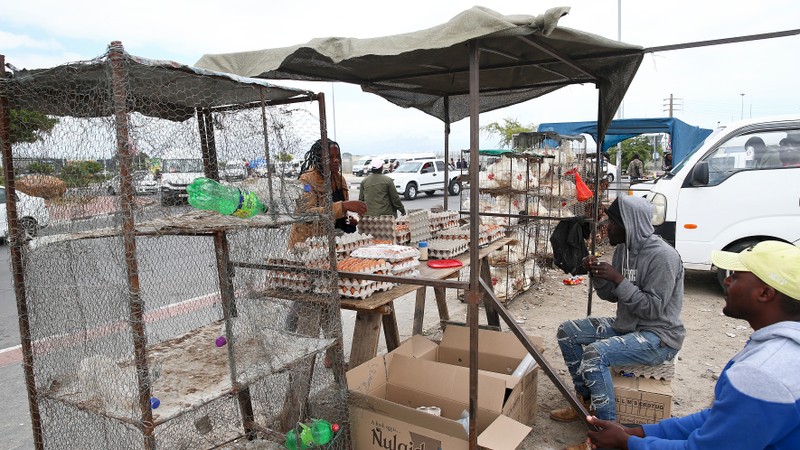
SOUTH AFRICANS BUYING DOWN ON CHICKEN PRODUCTS TO STRETCH THEIR MONEY
South Africans are increasingly buying down on chicken products to stretch their money as the soaring cost of living continues to place severe pressure on household budgets.
This is according to the latest import statistics released yesterday and compiled by food distributor, Hume International.
The data showed that total import volumes of whole birds had nearly tripled compared to the same period last year, and the total import volumes of chicken wings and drumsticks-products typically used by local manufacturers to supply fast-food chains, effectively doubled and leapt 94.08% and 108.74% year-on-year, respectively.
Hume International operations and logistics director Roy Thomas said these shifts first served as evidence of the very real impact of the bird flu outbreak in South Africa in the latter months of last year.
“Imports have always bridged the gap between local supply and demand, particularly for products such as whole birds, wings, and drumsticks. But millions of chickens had to be culled by the local industry because of the bird flu epidemic, stimulating demand for imports and resulting in meteoric increases in volumes – proving the point that imports continue to serve a vital role in our food supply chains,” Thomas said.
“But it’s also important to note that nearly all imports of whole birds consist of whole, spent layer hens – a product consumed almost exclusively by lower-income consumers. This indicates increasing pressure or distress among consumers in this market, further stimulating demand for whole birds.”
Moreover, demand for chicken livers more than doubled in the first quarter of this year by end-March, rising 118.25% year on year.
Simultaneously, demand for budget-friendly chicken carcasses had risen 85.16% year on year, and other offal cuts by 25.64%.
Thomas said the jump in demand for low-cost chicken products such as offal and carcasses served as additional evidence of this point, signalling local consumers’ increasing price sensitivity and the growing threat of food insecurity.
“Chicken has always been one of the more affordable animal proteins and a staple of South African diets, especially among lower-income families. But with the sheer size of the shifts that importers are seeing in the local market, it’s very clear that families are turning to less expensive cuts and products such as offal to make it through the month,” he said.
“Chicken livers, for example, are extremely popular among feeding schemes for schools as a rich and relatively cheap source of protein that they are able to can and distribute to those in need. But, as the figures demonstrate, imports represent an increasingly essential complement to local supply, as we’re seeing a huge growth in demand due to the tough economic environment.”
By contrast, the first quarter of this year saw import volumes for chicken leg quarters and thighs, traditionally more expensive and desirable cuts of meat, decrease by 61.33% and 91.22% year on year, respectively.
Thomas noted that these trends called into question the validity of local producers’ claims that recent tariff rebates on imported chicken products harmed their ability to compete.
Hume International said given the current price pressures and sales trends, they strongly believed the government should implement permanent rebates on import duties for chicken livers destined for school feeding-schemes as well as for poultry offal in general, which is a vital staple food for many low-income families.
BUSINESS REPORT
2024-07-05T04:13:32Z dg43tfdfdgfd
